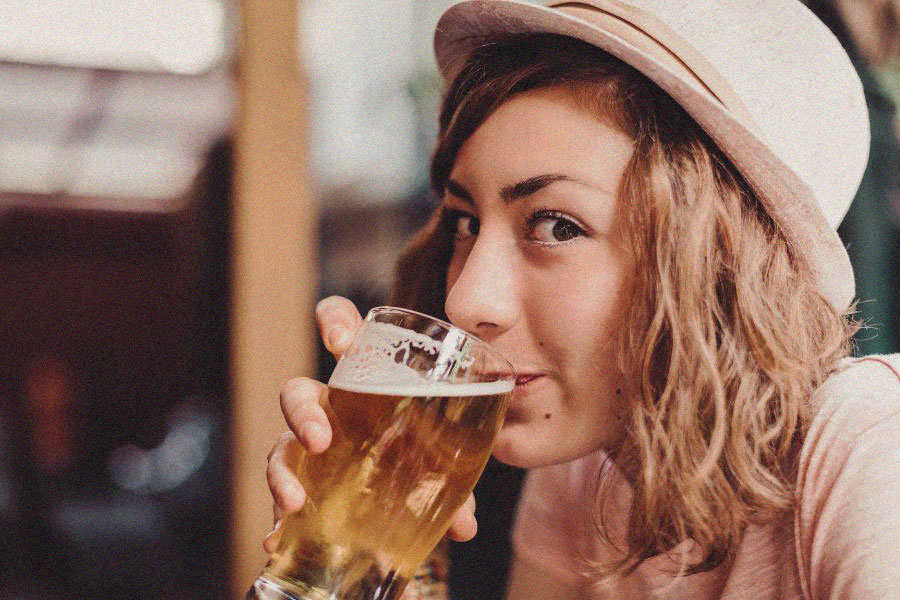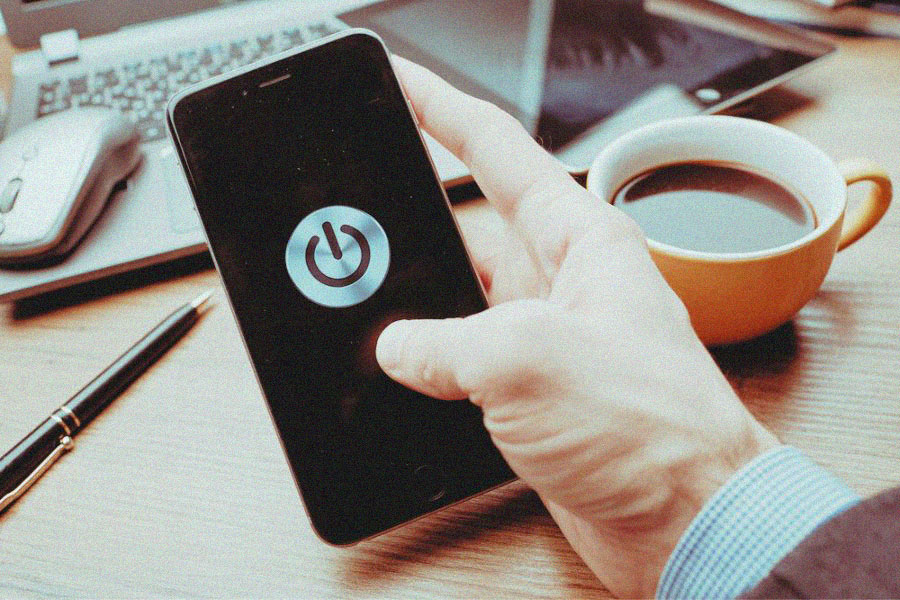Your girlfriend likes to drink, but you don’t. This difference can bother you. But first, explore why she drinks before feeling upset.

Drinking is her choice as an adult. Did she ever make you drink with her? If not, try supporting her. She likely drinks within limits and is responsible.
Still, too much alcohol hurts health. If her drinking seems dangerous, talk to her about it. But do this at a sober time in a caring way.
This article will explore reasons she might drink. This can help you understand her better. Also, get tips on what to do and not do as her caring partner. The goal is supporting her choices while protecting both your comfort.
Reasons Why Your Girlfriend Drinks
1. She Started Drinking Alcohol Early
Your girlfriend may have begun drinking alcoholic beverages when she became legal age. Now, alcohol is just a normal part of life for her.
She likely doesn’t go days without a bottle or glass of wine on the counter. Her drinking behavior probably seems routine, not reckless.
If you’ve never seen her drunk, try not to worry. This habit may be acceptable as long as she seems in control and drinks in moderation.
2. Her Parents or Family Drink Alcohol
Your girlfriend may come from a family of regular alcohol drinkers. Growing up, her parents probably introduced her to wine or liquor.
Now, certain wines or cocktails are just a part of family gatherings and meals to her. The taste of expensive alcohol may even be a source of bonding.
If she’s from a line of winemakers or distillers, abstaining from alcohol altogether may seem absurd. You’ll likely need to accept her drinking or exit the relationship.
3. She’s dealing with trauma
Your girlfriend may use alcohol to cope with trauma or distress she can’t handle when sober. Drinking helps numb her pain for a while.
This started after a traumatic event years ago. Now, when thoughts overwhelm her or her anxiety spikes, she chooses to drink beer or liquor to calm down.
But it only provides temporary relief before the feelings return. This vicious cycle likely means she needs counseling.
4. She may be addicted
If your girlfriend’s entire personality and social life seem to stem from drinking, she may have an addiction. Pay attention to her behavior sober versus when drinking.
If she’s only funny or friendly with a glass in hand, that’s the alcohol talking. Look for genuine laughs and conversation from her when she’s sober instead.
Other signs of alcoholism include aggressive outbursts over lack of drink access. If this fits your gf, know she needs expert treatment and your compassion.
5. Drinks to sleep better
Does your girlfriend use alcohol to improve her sleep? She may turn to nightly drinking as self-medication for insomnia or anxiety issues.
For her, a drink’s relaxing effects and drowsiness outweigh the unhealthy impacts of regular, heavy drinking. However, alcohol dependency can become truly problematic over time.
Express caring concern over her use of alcohol as a sleep aid. Suggest she speak to a doctor for safer insomnia treatments without the risks of addiction.
What To Do:
Communicate when she’s sober
Discuss your concerns over her drinking too much when she’s completely sober. Don’t accuse her. Kindly ask if she knows the health impacts.
If she’s unaware, educate her without demanding she stop drinking. Share research on risks, but let her make her own choices. Make sure she feels heard and respected.
If you have struggled with alcohol addiction, open up so she can better understand your feelings. Your story may motivate moderation or help-seeking.
Suggest activities without alcohol
Suggest alcohol-free date activities you can both enjoy. The trip shouldn’t revolve around bars or drinking games.
Instead, do things like mini golf, museums, concerts, or vacation in nature away from nightlife drinking scenes. This gives her a break while you bond.
If she gets irritated without drink access at first, gently keep encouraging sobriety-focused connections. Your closeness can displace her perceived “need” to drink heavily in time.
Attend sober spaces like diners
Suggest meals together at diners, coffee shops, or other spaces without a liquor focus, like Pop’s Chock’lit Shoppe. This removes temptation or triggers encouraging her drinking.
But if she eventually catches on and gets upset, revisit the topic. Explain you’re establishing boundaries, not attacking her choices. Keep communication thoughtful, caring, and productive.
Recommend seeing a doctor
If moderate attempts to curb her drinking fail and you believe she needs help, gently recommend making a doctor’s appointment.
Voice it from a place of loving and caring, not accusations. Let the doctor assess if alcohol dependency or addiction is present and require treatment or counseling.
Be a supportive system during her appointments and any recovery process. With expertise and compassion, you can help guide her toward healthier choices.
Spend quality time together
Making your girlfriend feel loved and supported can lessen her desire to “need” alcohol. Set aside more dedicated sober couple time focusing just on each other.
Cook dinners in. Watch movies cuddled up, take mini road trips – the goal is intimacy and trust. Show her you accept her troubles seriously, and she’s not alone.
With this foundation, she may better handle life’s stressors without constantly drinking excessively. Your comfort and understanding is vital.
What Not To Do:
Don’t Demand She Quits Drinking
Don’t give your girlfriend ultimatums to quit drinking – that exceeds your role and will only breed resentment. She drinks by choice as a responsible adult.
If it never pressures you to drink, too, you have no right to want her to stop entirely. Express your feelings, but don’t control her lawful choices around alcohol.
Don’t Make Her Feel Guilty
If you have a problem with her drinking, speak gently and without accusations. Don’t make her feel ashamed or guilty for choosing to drink in moderation.
If she’s impressionable, the guilt-tripping damage to her self-esteem could backfire. Handle the nuances of this issue with care for her emotional well-being.
Don’t Accuse Her of Addiction
Unless she shows clear signs of dependency, don’t casually ask if she’s addicted to alcohol. That’s an inflammatory assumption, not caring support.
State your worries factually and ask if she shares concerns about her drinking interfering with her health or life. Make space for open honesty, not feelings of being attacked.
Never Hide or Dump Out Her Alcohol
Taking and hiding her purchased alcohol essentially steals her property. It damages trust and won’t lead to change. If you find her drinking excessive, sensitively discuss reducing it – don’t enact sabotage.
Similarly, secretly tossing her alcohol won’t promote moderation for long. Have a dialogue; don’t turn this into a covert battle of wills through deception and conspiracy.
Don’t Blame Her Loved Ones
If her social circle or family also drinks, unfairly blame them for enabling her. Because you disapprove of drinking culture doesn’t mean they’ve done wrong.
Focus discussions on your relationship’s health, not making accusations about her life outside you. If this issue may become irreconcilable regardless, reflect deeply on walking away.
Final Thoughts
While you may not like alcohol, try to respect her decisions without Judgment. If her habit seems dangerous, let her know your concerns come from care and companionship. Suggest moderation, not ultimatums.
Ensure conversations remain value-focused instead of attacking her character. If this still bothers you deeply, reflect on whether you want to continue the dates in the first place.
The goal is to maintain a relationship where you feel heard, supported, trusted, and secure. Find compromises if possible, but accept your differences around drinking may be reconcilable.








